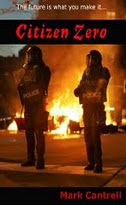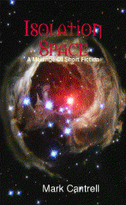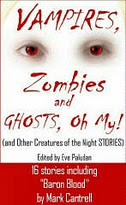Stoke-on-Trent found itself the focus of conflicting world-views on Saturday in the form of two political actions. The first group gathered to demonstrate a rowdy prejudice, the second to oppose racism and make a call for unity
THE English Defence League (EDL) proclaims its intention is to protest against Islamic extremism, but from the manner of its actions it is clear these are not protests – they are ad hoc attempts to demonstrate a show of force.
Yesterday it was Stoke-on-Trent’s turn to face the attempted intimidation of the EDL’s amassed boots and fists, with some 1,500 said to have turned out, but heavily constrained by Staffordshire Police they had to make do with yelling at the top of their raucous voices. When they weren’t singing football songs or garbling the national anthem, these hooligans-with-a-banner were repetitively chanting “EDL” or “Ingerlaand”. It’s an organisation that obviously has little of genuine substance to say.
There was a heavy police presence in Hanley, the city centre, with some 600 officers on duty to create a ring of steel around the assembled EDL. The organisation was pretty well contained by temporary barriers, lines of police – in standard issue uniforms – and police vans. Even so, there was some sporadic violence, and five arrests, as the EDL tried on several occasions to break out of the cordon.
 As political events go it was suspiciously ‘non-political’. It was lacking in the usual theatrics of the method. There was nothing in the way of speeches, no speakers to address supporters, waverers and observers alike. No leaflets were handed out; nobody canvassed people walking by. In short, the EDL made no effort to put across any kind of sustained and coherent point of view. Indeed, it was clearly only the banners that allowed this action to make a tenuous claim to have risen above the status of a tribal gathering of fellow hooligans.
As political events go it was suspiciously ‘non-political’. It was lacking in the usual theatrics of the method. There was nothing in the way of speeches, no speakers to address supporters, waverers and observers alike. No leaflets were handed out; nobody canvassed people walking by. In short, the EDL made no effort to put across any kind of sustained and coherent point of view. Indeed, it was clearly only the banners that allowed this action to make a tenuous claim to have risen above the status of a tribal gathering of fellow hooligans.Having said that, it would be a mistake to say there was no political intent behind either yesterday’s gathering or indeed the organisation itself. By the same measure, it would be wrong to casually dismiss the EDL as a rabble – though it often gave a good indication of that at times. The EDL is no disciplined body, as you might expect of a conventional campaign group. During the sporadic outbursts of violence, it was clear that sometimes it was a product of in-fighting between different factions of the EDL.
Still, at its centre, or backing it, are people with the resources and the capability to organise these mass actions, and it has some kind of political intention, albeit perhaps rather more loosely defined than is conventionally the norm with these movements. That, perhaps, reflects the measure of the mask the EDL tries to present to its audience, because while it lacks the conventional trappings of a political movement, nevertheless its displays are precisely that. It is a show for the crowds, to gain itself attention on the public stage, and call the like-minded to flock to its banners.
The banners reflect its public stance – to oppose ‘Islamic extremism’. In that, they reflect some serious issues in mainstream political discourse, but these quick and ready slogans are little more than sensationalist appeals, hijacked from mainstream concern, to arouse any simmering anti-Muslim feeling among their audience. As already mentioned, there’s no coherent argument underlying these slogans, nor any effort to reach out to those engaged in debating such issues.
It is certainly surreal to see the old Anti-Nazi League slogan “black and white unite and fight” displayed on a banner of such an organisation, but it does demonstrate the attempt to non-racialise a good old-fashioned racial intent. The boys of the EDL simply just don’t like Muslims. And they came to Stoke-on-Trent – as other places – to blow air on any simmering embers of anti-Muslim feeling that may exist in the city.
The anti-extremism line is the EDL’s mask and justification for this public display of old-fashioned prejudice. If it wasn’t, if it was sincere, then the organisation’s methods and practice would be entirely different. Of course, to the mindset of the anti-Muslim racist, ‘extremism’ and ‘Muslim’ are no doubt synonymous.
At this point, perhaps it’s worth making the seemingly strange observation about one thing the EDL and Anjem Choudary’s recently banned Islam4UK organisation have in common – is that they both seek to stir up and promote anti-Muslim sentiment in this country.
The two organisations have different aims of course, but for both, those aims are aided by fuelling prejudice against the Muslim community. The want Muslim and non-Muslim to hate and fear each other, to blame each other for their respective – and common – woes and to turn on another. In both cases, they are seeking to sow fear and distrust to further the political goals of a tight-knit clique of hardline political fantasists.
 Before the EDL assembled in Stoke-on-Trent, leaders of the city’s Christian, Muslim, Jewish and Sikh faiths issued their opposition to such divisive views at a candle-lit vigil in Stoke Minster.
Before the EDL assembled in Stoke-on-Trent, leaders of the city’s Christian, Muslim, Jewish and Sikh faiths issued their opposition to such divisive views at a candle-lit vigil in Stoke Minster.The Rector, Prebendary David Lingwood, said: "Coming together like this is important, because it will send out a positive image of this city. Extreme groups are trying to make strides into this city, trying to set the communities against each other and use faith to divide people.
"But we are standing together and, even though we are all different, we are working together to celebrate diversity. I hope this city can become a model for the rest of the country to show that it can be done. Others are trying to split us apart, but we all respect each other and get on well together, and if everyone can see that we hope it will have the right impact.
"Our message is no-one should go to the protest, either to support or protest against it, because either way it will just give publicity to it. We want to ignore this group of insignificant people who do not count in this city."
The Right Reverend Gordon Mursell, the Church of England Bishop for Staffordshire, said: “If Stoke-on-Trent is to have a good future it is absolutely vital that all its citizens, irrespective of creed and background work together for the common good. We believe that real diversity actually helps create a vibrant and attractive city. The EDL and BNP think the opposite. That is why we oppose them.”
Roman Catholic Auxiliary Bishop for North Staffordshire, The Right Reverend David McGough added: “We must all oppose any extremism that play on other’s fears and anxieties to divide our city and set one section of our community against the other.”
Mohammad Nazir Habib, chairman of the Staffordshire Muslim Scholars Association said: “We are here together and want to show that, in all matters to do with this city, we are with other people in our values and in our respect. Muslim people are worried about the EDL protest on Saturday. They are worried about the possibility of violence. Nobody should go to counter-protests. We want everyone to live in peace and harmony together.”
While Gurmeet Singh Kallar, from the Sikh Gurdwarar, said: “As Sikhs we believe that all people are important to God and we are against the persecution of any group or minority.”
The sentiment to ignore the EDL is understandable and tempting, but bullies aren’t always dismissed so easily, especially perhaps in a city where the Far Right BNP has made gains. Left to demonstrate unchallenged risked the EDL dominating the landscape of discourse, and perhaps give it a boost by allowing its members to think they are unopposed. That’s why the EDL’s efforts to divide the city were challenged yesterday by a counter-demonstration called by Unite Against Fascism (UAF), the successor to the Anti-Nazi League.
 Now here was a genuine display of a political action – complete with speakers, leaflets, even entertainment, to engage with the public. The organisation’s message was to oppose racism and hate and call for common unity regardless of race, religion and creed.
Now here was a genuine display of a political action – complete with speakers, leaflets, even entertainment, to engage with the public. The organisation’s message was to oppose racism and hate and call for common unity regardless of race, religion and creed.For sure, the language was sometimes macho, tough talking and taunting to the fascists up the road, as is the way with broad-left activity, but it was a far more inclusive and reasoned action. There was no trouble here. This was an organisation that had a genuine political message and a genuine intent to reach out and make a difference. It wasn’t about peddling hate and violence.
Certainly, going by the deployment of the police, the UAF demonstrators were perceived as far less of a threat to public order than the EDL.
Observers with little experience or consideration of activist-based politics might have felt the two events equally off-putting, but the UAF itself is a focus for a wide array of individuals and organisations from across civil society – trade unions, voluntary and community groups, and more. It represents – and demonstrates – a far wider and diverse social base.
 Fittingly enough, UAF held its counter-demonstration in Albion Square outside Hanley’s old Town Hall. Good old Albion, a staple of narrow English nationalism, here displayed a true cross section of modern Albion – a diverse mix of people black and white, male and female, old and young – all determined to stand against hate and division.
Fittingly enough, UAF held its counter-demonstration in Albion Square outside Hanley’s old Town Hall. Good old Albion, a staple of narrow English nationalism, here displayed a true cross section of modern Albion – a diverse mix of people black and white, male and female, old and young – all determined to stand against hate and division.In Albion Square, the city saw a far healthier complexion than the uniquely white, male entourage of the EDL.
On the bus to Hanley, before either event began, a curious elderly passenger asked about the police presence. His reply was simple and to the point: “There’s some kind of fascist group coming to the city.”
Indeed, the EDL is some kind of fascist group, intent on spreading hate, but their message did not go unchallenged. The urge to live together in peace is stronger.
Mark Cantrell,
Stoke-on-Trent,
24 January 2010
Copyright © January 2010. All Rights Reserved.
Category: SOCIETY




























0 comments:
Post a Comment